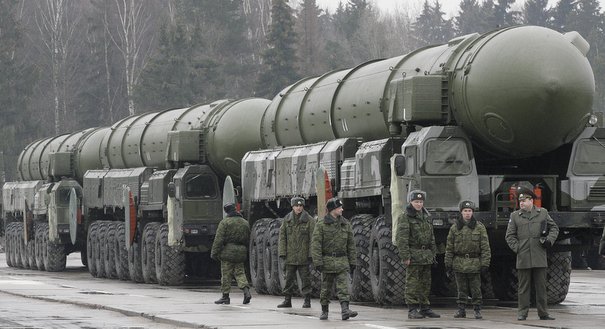During this holiday season, one thing that we can all be especially thankful for is that after months of political wrangling, the New Strategic Arms Reduction Treaty (New START) has been ratified by the U.S. Senate and will enter into force after passage by the Russian Duma, expected shortly. Though ratification is a great victory for global security and a positive step toward a world with fewer nuclear weapons, the celebration will be short lived. While New START was in many ways a continuation of the reductions and verification measures of the previous START (in force from 1994 to 2009), and thus was relatively simple to negotiate, the next arms reduction treaty will be quite a different agreement altogether. The next step to reduce nuclear arms must deal with two major arms control issues, both of which have been excluded from past treaties: tactical nuclear weapons and other nuclear weapon states. Though Russia may insist on addressing related issues—such as conventional weapons imbalance, precision conventional weapons, and missile defense—as a part of any future nuclear reductions treaties, these issues should remain as separate or parallel agreements.
For tactical nuclear weapons, the United States and NATO would like to see both increased transparency in the Russian tactical nuclear arsenal and verifiable reductions to the arsenal, which estimates put at between 3,000-5,000 weapons. Russia, on the other hand, would like to have the estimated 180 U.S. tactical nuclear weapons stationed in NATO countries returned to U.S soil. These two positions appear to present a bargain that, after negotiations, should be acceptable to all. The weapons located in Europe are generally unpopular with European citizens and even some European governments, and are in some cases not well secured (for example, an anti-nuclear group in Belgium recently broke on to a base where U.S. weapons are located). Careful negotiations that would remove U.S. nuclear weapons from NATO in exchange for increases in Russian tactical nuclear weapons transparency and reductions would be a boon to global nonproliferation and nuclear security and would be another step forward in U.S.-Russian cooperation.
Involving other nuclear weapons states in future reductions will also be a difficult but necessary step forward in nuclear arms control. The first step that the United States and Russia must take to expand arms reductions is to bring China into the U.S.-Russian negotiations, with the aim of expanding the START framework into a trilateral agreement. Many, including some Chinese officials, have argued that such tri-lateral reductions are not possible so long as the United States and Russia maintain arsenals that are so much larger than China’s—even after the New START reductions have been achieved, China will have less than one-fifth of the weapons that either the United States or Russia have. However, with careful and persistent negotiations, ways may be found to deal with such imbalance. For example, reductions could be pursued not as absolute numbers, as was the case in the START agreements, but instead as equal percentage reductions, in which each party would agree to reduce their arsenals by a set percentage. This would enable broader participation in arms reductions, while taking the arsenal imbalance into consideration. As the U.S.-Russian-Chinese negotiations move forward, other parallel negotiations could also take place, for example Russia-U.K.-France negotiations, which would lead to an arms control system embracing all recognized nuclear weapon states. A China-India-Pakistan agreement on reductions could bring declared but unrecognized nuclear arsenals into the arms control system.
New START, which took a year to negotiate and eight months for the Senate to debate and ratify, demonstrates that even relatively simple negotiations can take much time and effort to complete. Since the next step in arms control will be even more difficult, and include issues and parties not previously part of the debate, the United States, Russia, and other parties need to begin thinking now about these issues and engaging NATO, China, the U.K., France, and even India and Pakistan, so that we can move forward towards a world with fewer nuclear weapons without any unnecessary delay.
Marcy Rutan Fowler is a Visiting Researcher at the Carnegie Moscow Center.
